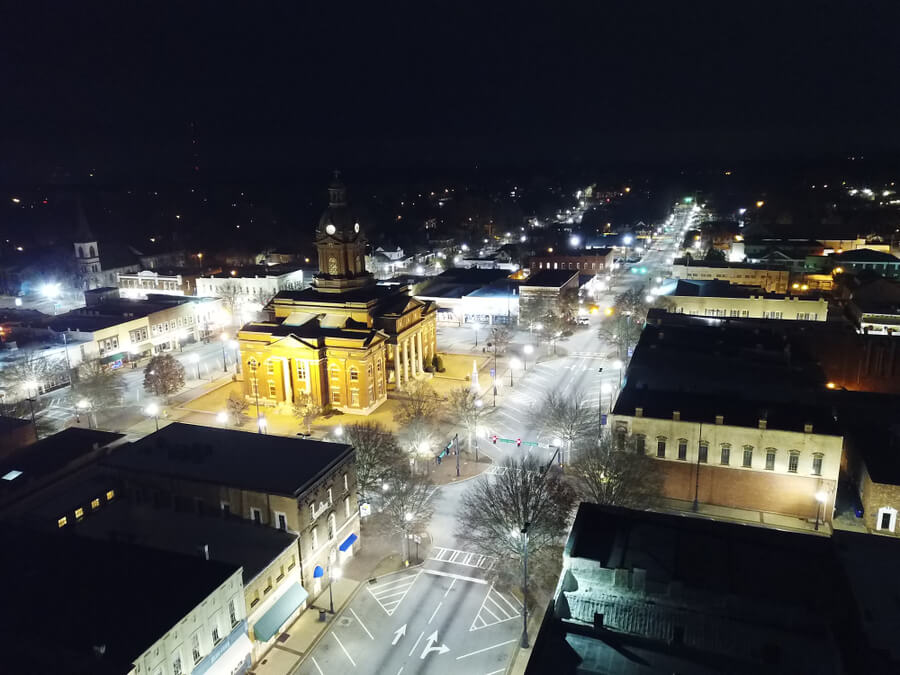Drug And Alcohol Rehab Centers In Georgia: Find Treatment

Drug abuse is a continuous struggle for substance abuse treatment centers in Georgia. The government and the drug & alcohol rehab centers in Georgia have joined hands to find solutions to stop the spread of the opioid epidemic in the state.
Learn About Substance Abuse Treatment In Georgia:
Drug Statistics In Georgia
Since 1999 drug overdose deaths have been increasing in Georgia, reaching 47,600 victims in 2017 (a 6% increase). The most significant rise was seen in the overdose with prescription opioids (568 deaths), followed by synthetic opioids (419 deaths) and heroin (263 deaths).
According to substance abuse treatment centers in Georgia, one of the biggest issues that fuels the drug addiction epidemic is opioid prescriptions. Around 70.9 such prescriptions were released per 100 persons in 2017 in the state, a number that surpasses the average of 58.7 prescriptions per 100 persons in the US.
Addiction Prevention Programs
The state has already started the war against drug addiction by implementing several laws and acts, such as Georgia’s Good Samaritan Law and by extending substance abuse training in Georgia. Also known as the Georgia 911 Medical Amnesty Law, its purpose is to protect the person who calls 911 and ask for an ambulance for someone who has the symptoms of a substance overdose.
Many people who overdose or who witness a person experiencing an overdose hesitate to seek help being afraid that they will be arrested for drug abuse. With these laws, the victim and the caller cannot be prosecuted or arrested for small possession of illegal substances if they seek medical assistance.
Access To Treatment
The government is working on facilitating access to substance abuse programs in Georgia to people who cannot afford the rehab treatment, such as those in the rural areas. The purpose is to offer the needed support to those who are impacted by addiction, their close ones, or family members.
Rehab Treatment Options
But each alcohol and drug rehab in Georgia also has the freedom to develop their own rehab programs and treatment plans. This way, the patient can choose the therapy that suits their preferences, needs, schedule, and personality.
Substance abuse treatment in Georgia include:
- medical detox
- contingency management
- intensive care
- motivational enhancement therapy
- peer support services
- cognitive behavioral therapy
- residential services
- transitional housing
- crisis stabilization programs
- opioid maintenance treatment
- deaf or hard hearing services
Drug and Alcoholism Recovery Centers In Georgia
-

Turning Point, Moultrie, Georgia
-

Bluff Plantation, Augusta, Georgia
-

Freedom From Bondage Rehab, Athens, Georgia
-

New Beginnings Ministry, Martin, Georgia
-

Pathways Center, Carrollton, Georgia
-

The Extension, Marietta, Georgia
-

Penfield Christian Homes, Union Point, Georgia
-

Mothers Making a Change, Marietta, Georgia
-

Grace Harbour Behavioral Health, Newnan, Georgia
-

Skyland Trail South Campus, Atlanta, Georgia
Finding The Right Rehab Option
With such a diversity of rehab treatments, any individual who is ready to free themselves from addiction can find the right substance abuse treatment in Georgia. No matter if it’s an outpatient or inpatient rehab, people of any age can overcome addiction and get back control over their lives.
- Drug Overdose Deaths. Centers for Disease Control and Prevention. https://www.cdc.gov/drugoverdose/data/statedeaths.html.
- Georgia Opioid Summary. National Institute on Drug Abuse. 2019. https://www.drugabuse.gov/drugs-abuse/opioids/opioid-summaries-by-state/georgia-opioid-summary.
- Stephens C. Georgia’s Opioid Epidemic and Ways to Get Help. GeorgiaGov. 2017. https://georgia.gov/blog/2017-12-12/georgia’s-opioid-epidemic-and-ways-get-help.

